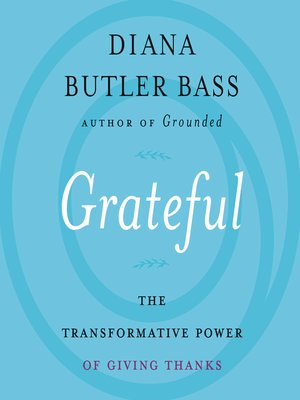
Sign up to save your library
With an OverDrive account, you can save your favorite libraries for at-a-glance information about availability. Find out more about OverDrive accounts.
Find this title in Libby, the library reading app by OverDrive.



Search for a digital library with this title
Title found at these libraries:
| Library Name | Distance |
|---|---|
| Loading... |
The author of the multiple award-winning Grounded and leading trend spotter in contemporary Christianity explores why gratitude is missing as a modern spiritual practice, offers practical suggestions for reclaiming it, and illuminates how the shared practice of gratitude can lead to greater connection with God, our world, and our own souls.
More and more people are finding God beyond the walls of traditional religious institutions, but these seekers often miss the church community itself, including its shared spiritual practices such as gratitude. While four out of five Americans have told pollsters they feel gratitude in their daily lives, cultural commentator and religion expert Diana Butler Bass finds that claim to be at odds with the discontent that permeates modern society.
There is a gap, she argues, between our desire to be grateful and our ability to behave gratefully—a divide that influences our understanding of morality, worship, and institutional religion itself. In Grateful, Bass challenges readers to think about the impact gratitude has in our spiritual lives, and encourages them to make gratitude a ""difficult and much-needed spiritual practice for our personal lives and to make a better world.""
Grateful is partially an individual, emotional response to our circumstances, but research has shown that what we often miss is how much more it is a communal, actionable response. Bass examines this more unexpected experience of gratitude, and reveals how people and communities can practice it and thrive, whether or not they are part of a traditional religious community.







